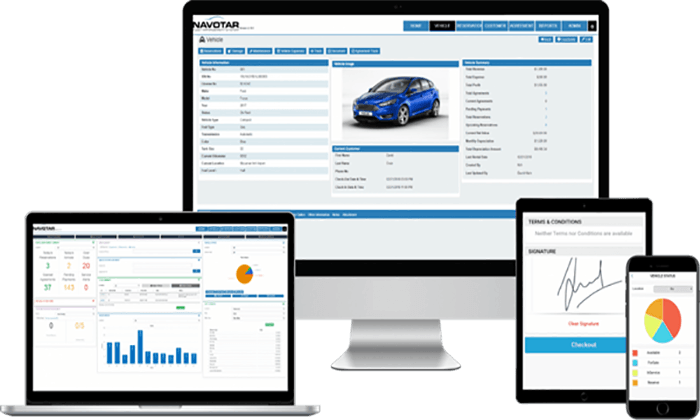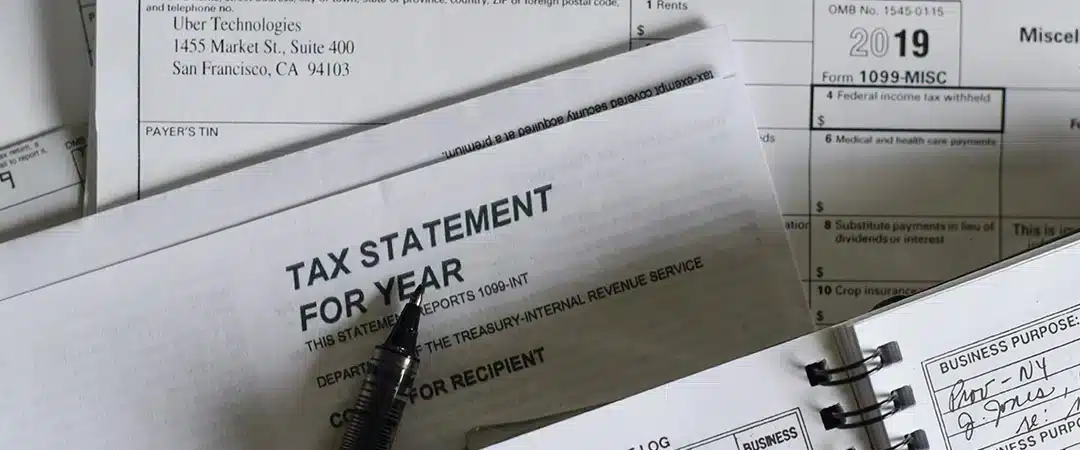You must be wondering to yourself “How to start a car rental business” and embarking on that journey is an exciting experience. Watching an idea turn into a full-blown business where you call all the shots doing what you love is a great achievement. Many people often wonder about starting their own auto rental business but there are so many options and industries you can get into. If you are here reading this, you may have an interest in establishing a car rental company, let us tell you why this is a good idea.
There is a demand for auto rentals! Yes, even in COVID-19 times there is a demand for car rentals as people are opting to rent a vehicle instead of using public transport. And the numbers only keep going up, it is predicted that there will be an annual growth rate of 18.5% CAGR (compound annual growth rate between 2020-2024) resulting in revenue of USD 105,285 million globally by 2024. This shows that there is room for growth and that this is a service needed by people. The only way is up!
So, how do you start one of your own vehicle rental businesses? Keep reading to find out!
Getting started on your car rental business
There are many things to consider other than registering your business with the state – target audience, legalities, employment, etc. We have put together a simple guide with all the crucial steps you will need to take when starting your own car rental business.
Step 1: Type of car rental business
Before starting you need to know and decide on what type of vehicle rental business you want to run. You have a few options to choose from: buying an existing car rental business, own a franchise, build your own company and brand, or work with a car dealership.
Whatever option you choose, each of these has its pros and cons. The important part is that you choose what fits your principles and goals best. Let’s look into these options:
Franchise
If you go for a franchise you will have to purchase the rights to the brand and business model of an existing rental business. There are many big-name franchises out there such as AVIS, Budget, Enterprise, etc.
There are pros and cons you need to consider before making your decision.
Pros: it is fairly simple to start your business as everything is already set up. There may be a higher cost for entry, however, you will be supported by an already well-established brand and guidance to launch and operate at your location. An added comfort is the franchise financing options.
Cons: you will not have autonomy over your business and the initial franchise fee may cost you tens of thousands of dollars. Know that the franchisor will control most of the business decisions as all locations follow the same business model designed by them.
Car Dealership / Replacement Rentals
This is ideal if you have a low budget to start with, as you won’t need a large fleet, to begin with. All you need to do is strike up a deal with a car dealership to offer rentals to customers who bring in their vehicles for repair. However, this usually means you will only have a very limited pool of customers to work with.
Independent Business
Having your own business is great – you get to call the shots, decide what your brand image will be, and answer to no one. However, with all that freedom there is a lot of responsibility. Building your business image from the ground up can be difficult, especially since you will be competing with more popular and established companies. Besides that, you will have to have the good financial backing to support all your operations.
Existing business
It seems like the best option as you are buying a business that already has a loyal client base, an established brand image, and the freedom to make your own decisions. But, there’s a lot to consider before purchasing a company.
You need to do some background research into the car rental industry, look at why it was successful, who is their client base, does it align with your goals, what you can do to improve it, etc.
Step 2: Target Audience
Your target audience will determine a lot about your brand image and how you want to market your services. The usual target audiences for car rental businesses are tourists, business travelers, people seeking long-term rentals, loaner cars for car dealerships.
The best way to get a good idea of who your ideal target audience could be is by looking at your location and the market demand for your business in your area.
Step 3: Building a Business Plan
Before anything, coming up with a good plan is key. Nothing can go forward without a foolproof plan. Planning allows you to explore business ideas, the pros and cons, and the unknowns that you will come across. It will also help your future investors and partners
You will need to think about the startup and ongoing costs of running a car rental, these include:
- Money allocated for a fleet of vehicles
- Fees you will charge per rental
- Security
- Financial projections for the next couple of years
- An office space: rent and office equipment such as computers, high-speed internet, printers, etc.
- Salaries for employees
- Incorporation fees
- Vehicle maintenance
- Marketing plan
Step 4: Registration, License, and permit for your car rental business
Now that you have a plan in place, the next step is to establish a legal business entity. You have to register your business with your state/city, the registration process may differ from country to country. The registration process usually involves the filing of appropriate forms and the payment of a nominal fee.
Going for a business structure such as LLC prevents you from being liable if your auto rental business runs into legal issues. There are many other business structures you can opt for such as Corporations and DBAs. Always opt for a registered agent to protect your privacy and stay compliant with rules and regulations. The benefit of opting for an LLC or corporation will keep your personal assets safe and separate from that of your business, which is great in case of any legal action taken against your company.
Be sure to obtain all necessary permits and licenses; failure to do so could result in fines or a complete shutdown of your business. Your state/city would have specific local licensing requirements and permits for car rental businesses. Get yourself acquainted with a business attorney to help you with the ropes of applying for permits.
Step 5: Fleet insurance
Along with the above obtaining fleet insurance is beneficial in that it protects your business in case of a financial loss. The fleet insurance protects your fleet in the event of any physical damage. There is no set amount of cars needed to qualify for fleet insurance, depending solely on the insurance provider.
Step 6: Finances
Owning a vehicle rental business means your expenses will be complicated and sky-high, so you must get your finances in order.
Business bank account and credit card
Note that mixing your business accounts with a personal bank account will lead to messy and extremely risky things. If your business is sued personal assets would be at high risk.
Always have a separate business bank account as well as a credit card registered in your business’s name though you may have used personal money to fund the business. Doing this will help you get better interest rates, a higher line of credit, and more benefits. Remember to only maintain business transactions with these accounts and not others.
Other avenues of funding
Other than your initial start-up funding you can look into other funding options such as loans. There are many loans available for business; term loans, lines of credit, equipment financing, etc. A business auto loan can help with finance fleet cars, while an equipment financing loan will allow you to finance the purchase of office equipment such as computers, that also act as collateral.
Step 7: Rental Contract

This is essential for all car rental businesses; it is an agreement made between the auto rental company and the client. All clients are required to sign this agreement before obtaining the rental. This contract will help avoid legal disputes that may arise, and both parties are safe. Have a clear set of terms and conditions, and what the client can expect from your service.
To make sure that your contract is sound, run it by a legal professional who has experience in handling legalities pertaining to vehicle rental businesses.
Step 8: Building your team

Now that you have everything set up, you just need a team of professionals to help you run the business. From receptionists to customer service personnel, to accountants running the numbers, and mechanics – you will require a myriad of personnel to run the operations. Apart from hiring the right employees for your business you also need to reflect on your duties as a responsible employer. Things to consider would be workers’ compensation and unemployment contracts.
Step 9: Software and Website for your Car Rental business

How frequently your customers keep returning depends on how your service is and how efficient your website and mobile app are. An easy-to-use, quick reservation process paired with attentive customer service can increase customer satisfaction.
If you are looking to incorporate car rental software into your business, RENTALL’s vehicle rental software can cover you on all fronts. RENTALL’s innovative and customer-friendly fleet management software will help improve your business. The cloud-based software allows you to access customer management, vehicle damage management, accounts, and more, all in one place. The software will be connected to your website and mobile application and is accessible via any smart device.
Investing in a good web developer to design a website representing your brand and services is imperative to retaining your client base and ushering in new business. Your website should include all the information about the car rental business required by a potential customer, as well as social media accounts that are directed to the website.

Car Rental Software
You’re in control. Stay up to date with the status of your vehicles and customer reservations 24/7 with our car rental management software
Online Reservations Plugin
Integrate the plugin on your existing website. Customers can now easily book online while you can easily keep track of bookings and reservations.
Website Development
Do you want to launch a website for your rental company? RENTALL specializes in developing new sites according to the latest technology trends.
Step 10: Travel Network Sites

Once you have established a functioning auto rental website and rental software, the next step is to look to international travel network sites where you can upload your entire fleet inventory and garner an international client base.
With RENTALL this is now available to all vehicle rental businesses using our Cloud Based Car Rental Software. RENTALL has partnered with CRX which in turn is integrated to travel network sites like KAYAK, Car Trawler, Car Rental Express, etc., allowing rental businesses to access reservations made through these sites.
Step 11: Digital Marketing

In today’s day and age everything is digital, therefore using the digital platform to push your business forward is a great approach.
Social media is the best tool to use when promoting your business. Many social media apps like Instagram and Facebook come with business options that allow you to manage a business account and make promotions with ease. Running social media ad campaigns and coming up with collaborations and special offers for customers can also help in garnering a wider customer base.
SEO (Search Engine Optimization) is also crucial in helping your business rise above your competitors. SEO allows your website to show up on top in search results. This can be achieved by analyzing trends and using keywords in weekly blog articles that will push your brand forward.
RENTALL is the number 1 Car Rental Software provider, our software is a one-stop shop for auto rental businesses. We specialize in developing user-friendly websites that are innovative and efficient. You can also gain access to the Reservation Plugin that will be integrated into your website; it allows customers to make online bookings with ease.
For more information on other fleet management tools, you can use for your business, visit our website.
In conclusion
Starting a car rental business can be daunting and overwhelming. There are so many steps and details that cannot be overlooked, however, with some patience and attention to detail your auto rental business will be up and running in no time.
Good Luck!



































